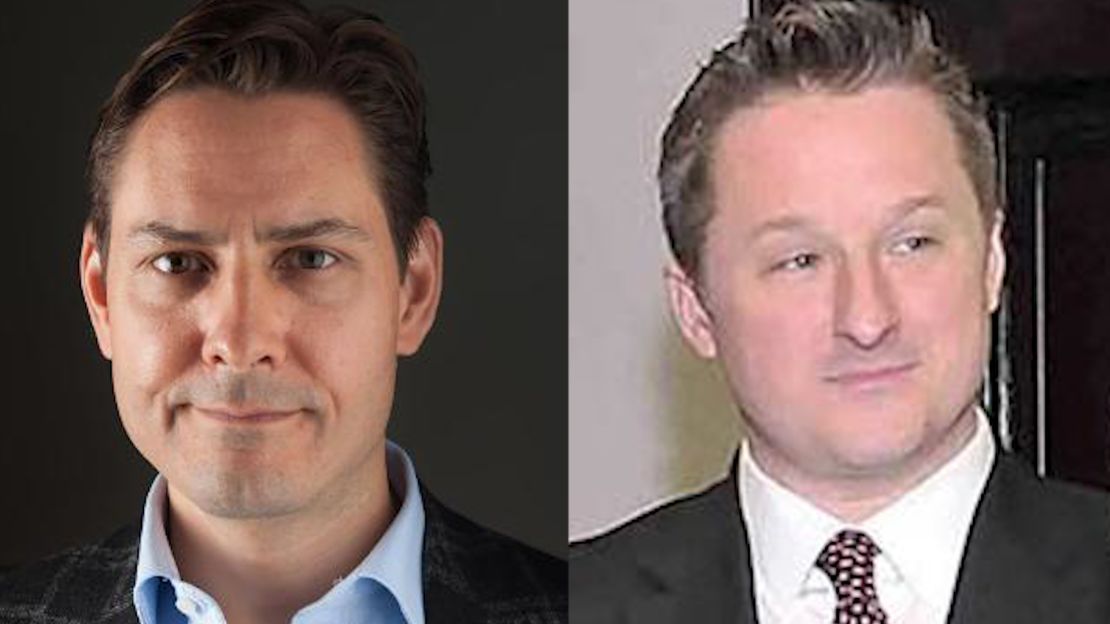The decision by China to charge two Canadians with espionage was clearly political, the country’s Prime Minister, Justin Trudeau, said Tuesday, after a top Chinese diplomat warned him to “stop making irresponsible remarks” about the case.
Trudeau was speaking days after Michael Kovrig and Michael Spavor were officially charged with spying and handling state secrets. The two men were first detained in late 2018 in the weeks following the arrest in Vancouver of Meng Wanzhou, chief financial officer of the Chinese technology company Huawei, on charges filed in the United States.
“It has been obvious from the beginning that this was a political decision made by the Chinese government and we deplore it,” Trudeau told reporters in Ottawa, adding that “we’re not considering” any trade of the two men with detained Huawei executive Meng Wanzhou.
“Anyone who is considering weakening our values or weakening the independence of our justice system doesn’t understand the importance of our values,” he added.
His remarks come after Chinese Foreign Ministry spokesman Zhao Lijian criticized both Canada and the US for their comments on the case. In a regular press conference this week, Zhao said that “the Chinese judicial organs handle cases independently and guarantee the lawful rights of those Canadian nationals according to law.”
“We urge the Canadian leader to respect rule of law and China’s judicial sovereignty, and stop making irresponsible remarks,” he added.
Chinese officials have not disclosed any evidence against the two men or information detailing their alleged crimes, but have said, “the facts are clear and evidence is solid.”

Potential prisoner swap?
Pressure is growing in Canada for Trudeau’s government to do something about the case of the “two Michaels” as it is known there.
On Tuesday, the CBC interviewed a number of legal experts who agreed that Trudeau could intervene in the Meng case if he wished to, though the Prime Minister has previously said this would undermine judicial independence.
“The question isn’t whether the (Canadian government) can, the question is whether they should,” Toronto-based lawyer Brian Greenspan told the broadcaster. “The minister has the right to withdraw the authority to proceed and to end the extradition proceeding, and it’s totally at the discretion of the minister of justice.”
A person familiar with the situation told CNN last year that Canadian diplomatic efforts have so far been focused on attempting to solve what remains a complex political entanglement.
There’s a larger geopolitical game that’s happening between China and the US, in which Canada is somewhat caught in the middle, the person added, and it is the two Canadians who are paying the price.
Former Canadian deputy prime minister, John Manley, who served under Liberal Premier Jean Chretien in the early 2000s, previously said that he would recommend a “prisoner exchange, as crass as that may seem.”
“Those young men are in prison in very difficult conditions for one and only reason: the actions of the Canadian government, and the Canadian government should do anything to get them released,” he added. “What I fear most is … the United States enters into a trade agreement with China. And withdraws the extradition request. And Madame Meng is released immediately. We then have no leverage and they will make us wait, and we may wait years to see those two young men come home.”
Emotional letters
Speaking to Canada’s Globe and Mail on Monday, Bennett Kovrig, father of one of the detained men, said that “failure to act now is tantamount to a historic betrayal.”
“China has intimated for a long time that it was only interested in the repatriation of Meng and that it would immediately reciprocate by freeing the two Michaels,” Bennett Kovrig said. “Trudeau keeps repeating that he will not seek such a deal. Yet there is no alternative.”
Earlier this week, the paper published a series of letters sent by Kovrig to his wife Vina Nadjibulla.
“He writes about the meaning of life, the meaning of suffering,” Nadjibulla told the paper. “In one of his letters, he actually said, ‘I now believe the meaning of life is to alleviate suffering.’ “
While poignant and reflective, Kovrig’s letters, which are censored and monitored by the Chinese authorities, offer few details about his circumstances. Consular visits have been stopped since January due to the coronavirus pandemic.
“If there’s one faint silver lining to this Hell, it’s this: trauma carved caverns of psychological pain through my mind,” Kovrig wrote in one letter. “As I strive to heal and recover, I find myself filling those gulfs with a love for you and for life that is vast, deep and more profound and comforting than what I’ve ever experienced before.”




